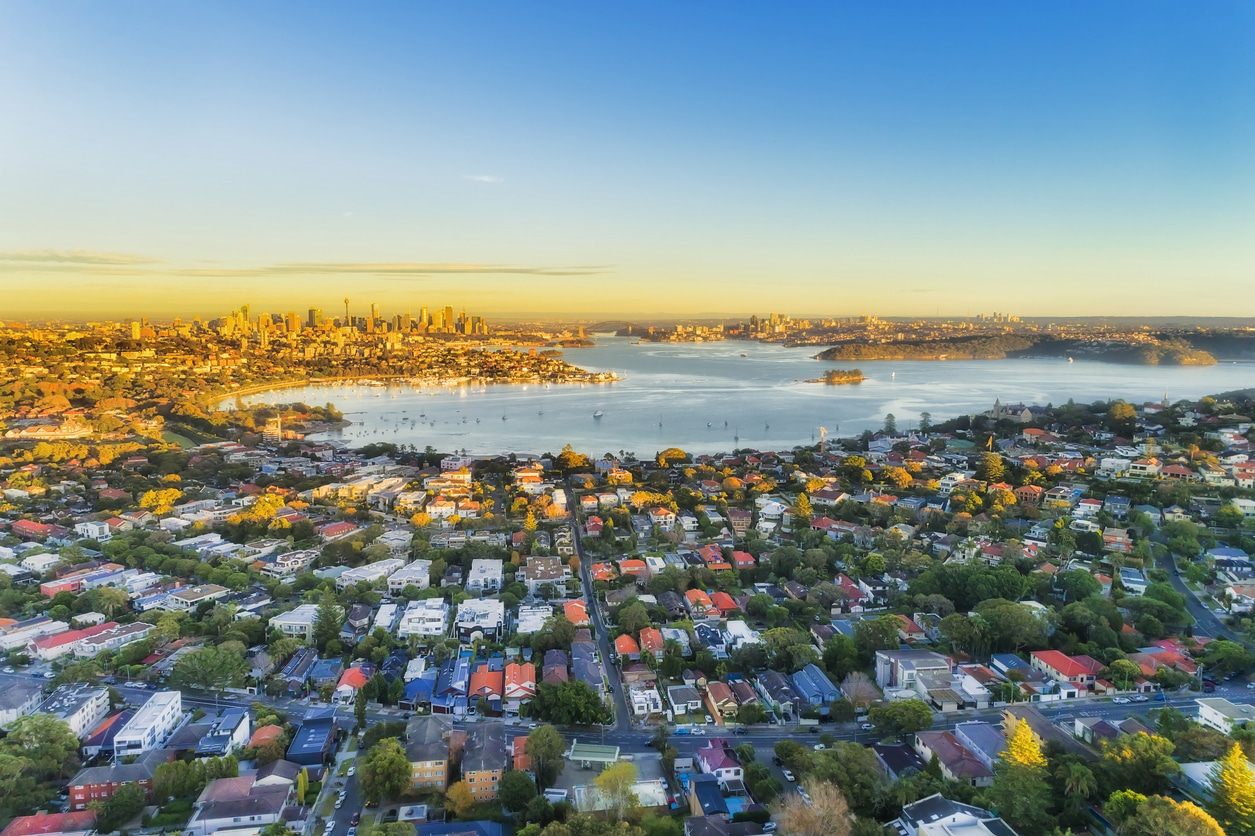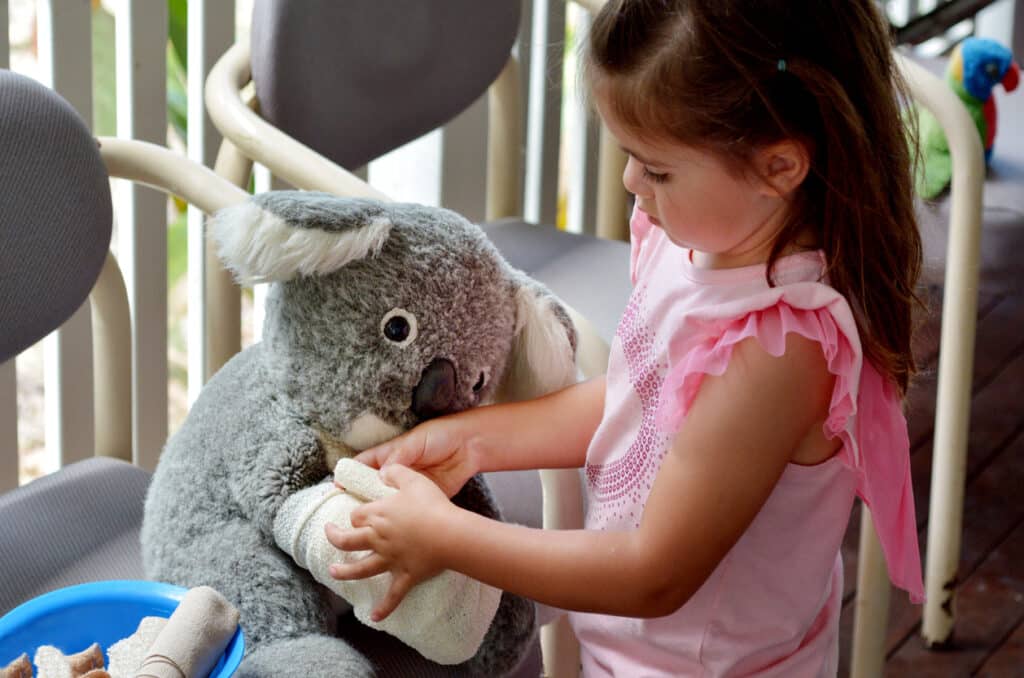Looking for housing in Australia? Get ready for a wild ride: open houses that feel like speed dating, rentals snapped up faster than a flat white, and a housing system that’s equal parts familiar and surprising. For American expats, finding the right place can be both an adventure and a crash course in Aussie life.
Whether you’re searching for a bargain in the ‘burbs, dreaming of ocean views in Queensland, or braving the price tags in Sydney and Melbourne, Australia’s housing market is always shifting. From capital cities to country towns, there’s a home for every budget—but getting your foot in the door is often the hardest part.
📋 Key Updates for 2025
- Foreign buyer ban: From April 1, 2025 to March 31, 2027, foreigners are banned from buying existing homes in Australia to boost local housing supply.
- New rental rules in Queensland: As of May 1, landlords must use standardised application forms and offer multiple application methods, making it fairer for renters.
- Interest rate cuts and price changes: A recent RBA rate cut is increasing borrowing power and driving a 4.6% year-on-year rise in house prices, despite ongoing affordability issues.
Understanding the Australian housing market
Australia’s housing market has a personality all its own, with unique pressures and government involvement that set it apart from what many American expats are used to. Here’s what you’ll notice right away:
- Extreme price differences: Sydney and Melbourne regularly top the charts for sky-high prices, while regional Queensland and Western Australia can be far more affordable.
- Diverse housing stock: Alongside classic standalone homes, there’s a growing supply of new townhouse developments, apartments, and community housing projects—each with its own quirks and application process.
- Supply and demand drama: Tight supply and rapid population growth fuel fierce competition, especially in popular cities and coastal regions.
- Australian government in the mix: Local and state governments play a hands-on role in zoning, new developments, and supporting affordable and social housing—including public housing options and policies for Aboriginal and Torres Strait Islander communities.
- Affordability as a hot topic: Rising costs and long waitlists for public or community housing keep affordability on the front page, shaping how homes are built, sold, and rented across the country.
💡 Pro Tip:
Whether you’re hoping to rent, buy, or just understand what’s driving the housing conversation in Australia, these factors will set the stage for your search.
Renting in Australia: How the system works
Renting in Australia can feel like a whirlwind for new arrivals—each state and city puts its own spin on the process, and competition can be fierce, especially in big capitals.
- Lease terms and deposits: Most leases run 6 or 12 months, and you’ll need to provide a “bond” (security deposit), typically equivalent to 4 weeks’ rent, held by a government authority.
- Applications and paperwork: Expect to fill out detailed applications, supply multiple forms of ID, proof of income, rental history, and references. In popular suburbs, waiting lists and “open inspections” (group viewings) are the norm.
- Inspections and renewals: Regular property inspections (every 3–6 months) are standard, and renewing a lease may involve new negotiations or even reapplying.
- Private, community, and social housing: Private rentals are most common, but community and social housing offer lower-cost options for those who qualify—including some expats and first home buyers on a tight budget. These are managed by non-profits or local government, and waiting lists can be long.
Rental systems vary state by state (New South Wales/NSW and Queensland have their own rules), so it pays to check the latest requirements and housing provider guidelines wherever you land.
💡 Pro Tip:
If you’re coming from the U.S., don’t be surprised by the paperwork—or by just how fast good rentals get snapped up!
Buying property: Homeownership for expats
If you’re thinking about buying a place of your own in Australia, you’ll find the process is a bit different from back home. Here’s what American expats need to know before jumping into the local property market:
- Eligibility: U.S. citizens and other foreigners generally require Foreign Investment Review Board (FIRB) approval, particularly for established homes. Most government incentives are reserved for citizens and permanent residents.
- Market trends: Sydney and Melbourne remain the most expensive markets, while cities like Brisbane, Perth, Adelaide, Canberra, and many regional areas can offer better value—but property prices have risen everywhere.
- The buying process: Start by researching with a licensed real estate agent and property sites such as realestate.com.au and gov.au. Secure mortgage pre-approval early—non-residents often need larger deposits and face stricter lending.
- Extra costs and requirements: Be prepared for additional taxes or surcharges on foreign buyers, and always arrange an independent building inspection before you buy.
- Types of property: Townhouses and new housing estates typically have fewer restrictions for expats than established homes.
💡 Pro Tip:
If you’re house-hunting from overseas, a local buyers’ agent or solicitor can help you navigate auctions, paperwork, and state-specific rules—saving you time, stress, and (potentially) money.
Housing affordability: City vs. suburb, state by state
Housing affordability and homelessness is a top concern in Australia’s big cities—and while much of the media spotlight falls on skyrocketing prices and a national housing crisis, there’s a broad mix of options for those willing to look beyond the obvious.
- Community and social housing: These programs are mostly aimed at Australians on low or fixed incomes, including vulnerable groups and long-term residents. Most American expats won’t qualify, but it’s helpful to know these systems exist, especially if you’re here on a long-term or permanent visa and face unexpected hardship.
- How it works: Managed by not-for-profits and state governments, community and social housing have eligibility requirements (usually related to income, residency status, or specific needs), with long waiting lists in major cities like Sydney and Brisbane.
- City vs. suburb vs. regional: Sydney and Melbourne set the high-water mark for prices, but many expats find better value in outer suburbs or regional cities—especially in Queensland and Western Australia, where new developments and townhouses are expanding the options.
- Government support for affordability: Programs like the Home Guarantee Scheme help some first-time buyers with lower deposits, while national and state strategies are focused on growing the supply of affordable homes—but demand is still strong, and competition for “bargain” properties can be fierce.
For most expats, affordable housing means exploring a wider radius, getting to know regional markets, and understanding that the public housing safety net is there, but not designed for new arrivals. The good news? Patience, preparation, and a little flexibility can go a long way toward landing the right place for your Aussie adventure.
Navigating local customs, Building inspections, and neighborhoods
Settling into Australian life isn’t just about finding the right house—it’s also about learning how things work in your new neighborhood, from working with agents to joining the local WhatsApp group.
- Real estate agents and housing providers: In most states (like Queensland and NSW), real estate agents manage the process, from property viewings to paperwork. It’s normal to deal with an agent, not the homeowner, for both rentals and sales.
- Building inspections: Unlike in the U.S., building and pest inspections are almost always organized by the buyer after a sale contract is signed, but before settlement. These checks are crucial—Australia’s older homes can hide surprises, and new builds can have their own issues.
- Local government rules and the ASGS: Councils set the rules for zoning, renovations, and even parking permits. The ASGS (Australian Statistical Geography Standard) can help you compare neighborhoods on everything from school zones to walkability and public transport.
- Choosing a location and settling in: It pays to spend time exploring—whether you’re looking for good cafes, quiet streets, or the quickest commute. Expats often connect with neighbors through local Facebook groups, community centers, or by showing up for a weekend sausage sizzle.
Finding your footing in Australia’s neighborhoods is about more than house prices—it’s about knowing the customs, asking questions, and getting a feel for what makes each community unique.
How to land the right home
Scoring a great new home in Australia isn’t just about luck—it’s about being prepared, proactive, and knowing how to work the system (without losing your sense of humor).
- Start early and be thorough: Good rentals and affordable homes go quickly, so get your paperwork ready—references, proof of income, and ID—before you start applying. Be prepared for waiting lists, especially in competitive cities.
- Use gov.au and local resources: Australia’s official housing websites are packed with up-to-date listings, application forms, and guides for both renters and buyers. Don’t forget to check for new housing projects or townhouses in areas with growing supply.
- Tap into support schemes: Housing Australia’s Home Guarantee Scheme can make buying easier for eligible first-time buyers. If you qualify for community or social housing, get on those lists early—they move slowly but can be a lifeline for long-term stays.
- Get expert help if needed: Relocation consultants, real estate agents, and local government services can take the guesswork out of the process, especially if you’re searching from overseas or juggling a move with kids and work.
The right approach (and a little patience) will help you land a home that fits your needs—and leaves you with more time to enjoy everything else Australia has to offer.
Finding your place in Australia
From high-rise apartments in Sydney to sun-soaked homes in regional Queensland, finding the right spot in Australia takes preparation, flexibility, and a bit of local know-how. The good news? With some patience (and maybe a few property inspections under your belt), you’ll land a place that feels like home in no time.
And when you’re ready to make the move, don’t forget about the paperwork that follows you across the Pacific. Bright!Tax is here to help U.S. expats sort out their expat tax filing—so you can focus on finding your dream home, not stressing over IRS forms. Reach out to us whenever you’re ready for a smooth landing Down Under.
Frequently Asked Questions
-
Can U.S. expats rent or buy property in Australia?
Yes! U.S. expats can rent anywhere in Australia. Buying property is also possible, but foreigners usually need Foreign Investment Review Board (FIRB) approval and may face extra taxes or restrictions.
-
How much should I budget for rent or a home purchase?
Rental and property prices vary wildly. Expect higher costs in Sydney and Melbourne, while regional areas and smaller cities tend to be more affordable. Always factor in extra costs like bonds (deposits), utilities, and stamp duty for buyers.
-
What documents do I need to rent a home?
Typically, you’ll need ID, proof of income or savings, rental references, and sometimes a letter from your employer. The process can be competitive, so have these ready before you start viewing properties.
-
Are short-term rentals common?
Short-term leases exist but are less common in the mainstream market—most leases are for 6 or 12 months. For flexibility, consider serviced apartments or platforms like Airbnb if you’re not ready to commit.
-
What’s the difference between community housing and social housing?
Both offer subsidized housing, but social housing is run by state governments for vulnerable groups, while community housing is managed by not-for-profits and may have different eligibility criteria. Most expats won’t qualify unless they have permanent residency or special circumstances.
-
Should I use a real estate agent or buyers’ agent?
For rentals, real estate agents manage most listings. For buying, a buyers’ agent or local solicitor can be a huge help—especially if you’re searching from overseas or navigating auctions.
-
What support is there for first-time home buyers?
Eligible citizens and permanent residents can access programs like the Home Guarantee Scheme to help with deposits. Temporary visa holders and most expats aren’t eligible, but it’s worth checking if your status changes.
-
When should I reach out to Bright!Tax?
If you’re moving to Australia and need help with cross-border tax filing, property taxes, or reporting requirements, reach out to Bright!Tax as early as possible. We’re here to make the transition smoother—so you can focus on settling in.

 Connect on LinkedIn
Connect on LinkedIn

